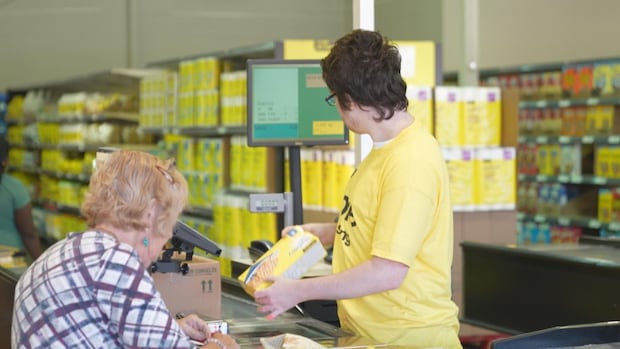Loblaw says only one of the three ultra-discount No Name grocery stores launched in Ontario last September will remain open.
These stores were initially pitched as part of a “laser-focused” approach by Loblaw to lower prices for customers while testing new concepts.
The stores in St.Catharines, Brockville and LaSalle, just outside Windsor, were stocked with fewer items delivered less frequently.
There were also fewer refrigerated sections and shorter operating hours, which would cut operating costs and result in up to 20 per cent cheaper items compared to competitors.
The St. Catharines store was the first to close in July, with the LaSalle location expected to close Oct. 25, according to the company.
Brockville’s location will remain open, according to a Loblaw spokesperson, who said the company will continue to evaluate its future.
Location may have been an issue, says expert
Loblaw said that the Windsor-area location did see a strong customer base when it initially opened but it “hasn’t built the customer base needed to remain sustainable long-term.”
The grocer did not provide any additional details about the closures, or lessons learned from the pilot.
A retail food demand expert said he expects Loblaw to lean further into their discount brands coming out of this project as it battles with companies like Costco and Walmart.
“I don’t think it’s a sign that this isn’t gonna work,” said Mike von Massow, a professor of food, agricultural and resource economics at the University of Guelph.
“I think this is a sign that it’s not gonna work in this market with this brand.”
Earlier this week, customers at the No Name store in LaSalle compared it to a dollar store with produce and more food items.
“The concept of it is great,” said Rob Caruana, who was trying to stretch his dollar while food prices rise.
He said the location wasn’t great because it’s in a car-centric area.
Putting a store in nearby Windsor’s downtown core, Caruana said, would be a success.
A grassroots campaign fuelled by left-leaning ideas led Zohran Mamdani to a resounding victory in New York City’s mayoral democratic primary. Policy analyst Vass Bednar says one of those ideas — government-owned grocery stores — could potentially work in Canada.
Von Massow expects Loblaw to tweak new stores based off the lessons learned from this pilot, so they can compete for customers eager for value as they watch food prices rise.
“We’ll continue to see experimentation on the part of the big retailers and expansion of the discount model to compete with those big box stores,” he said.
“Was that a successful experiment? Not particularly. Did they learn something? Without a doubt.”
The stores were first launched amid a boycott call against grocers because of rising costs, which von Massow says are 30 per cent higher than they were five years ago.
Discount brands like No Name are places customers have turned to for savings, he said, noting that these brands are slightly more profitable than mid-level brands.
“People on lower incomes are really getting squeezed and are changing their shopping behaviour to make sure that they can pay for everything,” he said.







